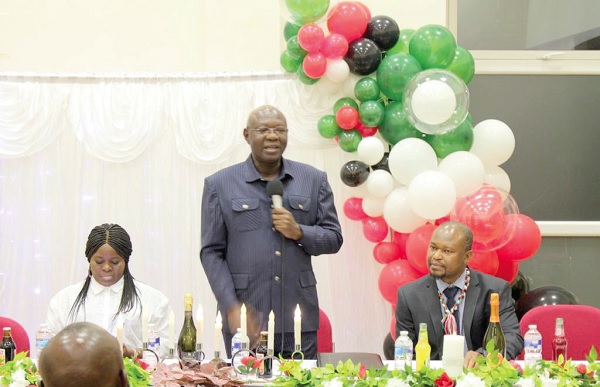A ndformer Minister of Environment, Science, Technology a Innovation under the erstwhile Mahama administration, Akwasi Oppong-Fosu, has said that Ghana’s economic crisis has resulted from interrelated factors, including leadership failure and democratic governance dysfunction.
He said other factors such as the meltdown of state institutions and plunder of national resources had resulted in unprecedented economic decline.
He said all of those had converged to tilt the country towards social and political instability.
Mr Oppong-Fosu, who was also a Member of Parliament for the Amenfi East Constituency in the Western Region, said this when he addressed members of the East London National Democratic Congress {NDC} at its Annual Conference in London, the United Kingdom.
The conference was on the theme: “Rethinking Leadership and Governance for the Ghana We Want: The Role of the Diaspora”.
Mr Oppong-Fosu, who also served as a Minister of State at the Presidency during Mahama’s administration, said the theme for the conference reflected the desire for a non-partisan approach “to building the Ghana we all want,” knowing that Ghana was in a national crisis and verging on a national catastrophe.
“The leadership of Ghana has to do things differently and urgently so we avoid the consequences of the dark clouds looming over our heads,” he said.
The Ghana We Want
Mr Oppong-Fosu said although the Directive Principles of State Policy of the 1992 Constitution clearly articulates “The Ghana We Want”, these principles have taken the centre stage in recent times in our public discourse as if they are new things which have suddenly appeared from nowhere.
“The sudden upsurge in the discourse is as a result of the self-serving political and policy choices, economic mismanagement and exponential rise in corruption and the negative impact on the well-being of citizens”.
“The Ghana We Want” has been featuring prominently in the campaign messages of former President John Mahama who is also the flag bearer of the NDC”.
Democratic Governance
The former minister of environment said with the advent of the twin concepts of globalisation and democratisation since the late 1980s, the notion of governance has shifted from a focus on what governments do, to an increased recognition of the role of non-State actors, including civil society organisations, media and think tanks.
He said democratic governance which has been conceptualised as the effective management and mediation of the interaction of state and non-state actors, has engendered the building of open, transparent, responsive and accountable institutions and processes that serve the needs and preferences of citizens.
Mr Oppong-Fosu said over the years, Ghanaians have bemoaned the lack of progress in socio-economic development and continue to cite the rapid post-independence growth and development of countries such as Singapore, Malaysia and South Korea who were at the same level of development and gained independence around the same time.


